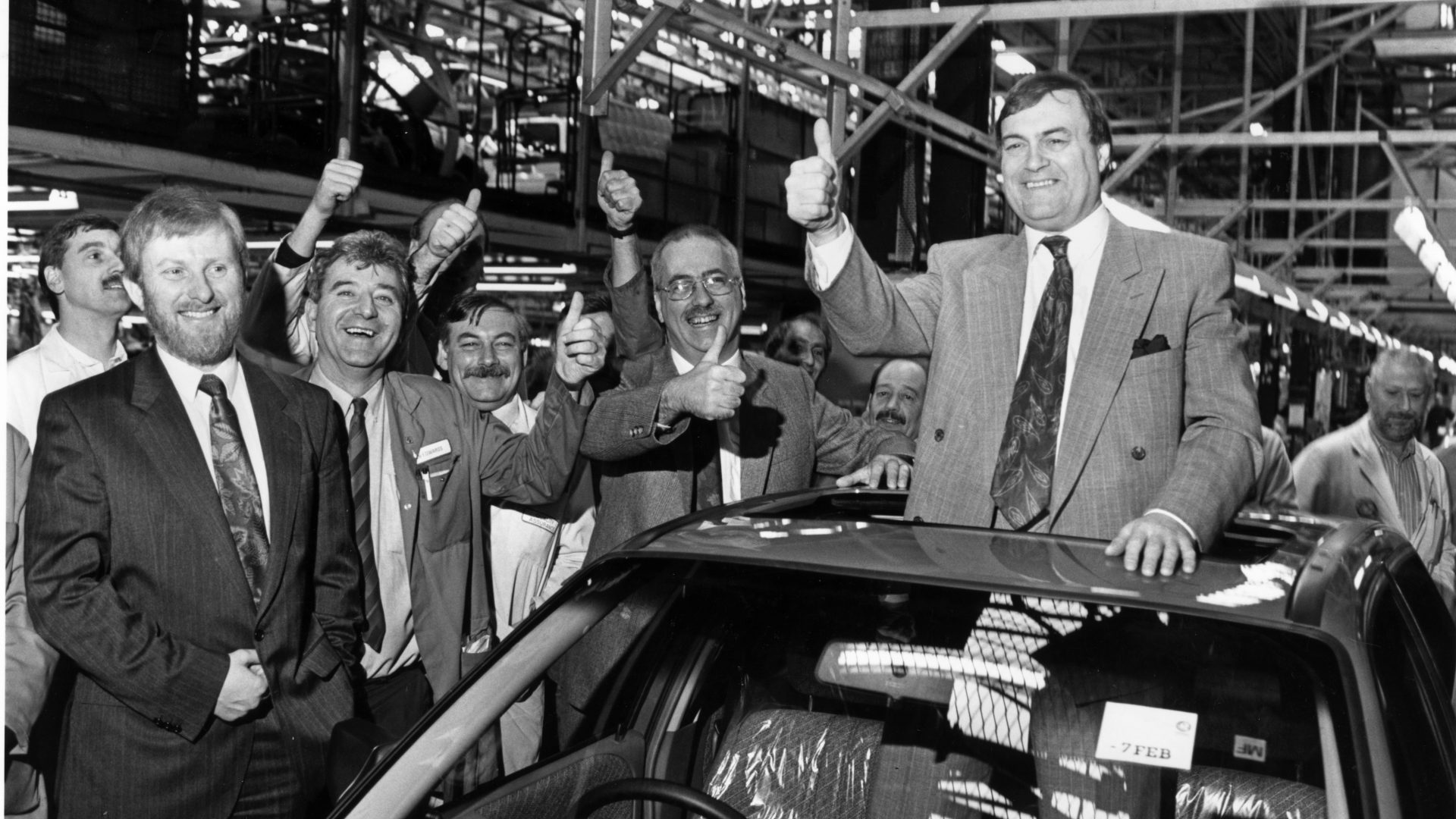John Prescott has died at the age of 86, leaving behind a remarkable legacy. Here are 10 things you might not find out from the warm tributes to a man I served with in the New Labour government.
1) Prescott was born in Wales but from the age of four lived in South Yorkshire. He was denied a place at a Rotherham Grammar School, later attended by his Commons sparring partner William Hague. England’s post-war schools divided children into first- and second-class future citizens at age 11, not based on ability but on the number of grammar school places available. Prescott therefore was a victim of England’s class division based on education, a division that began to erode when Labour brought in comprehensive schools. Tony Blair, with John as his deputy, then went further by expanding university education.
2) He left school at 15 but after several years at work on passenger liners, during which time he became active in the National Union of Seamen, Prescott in due course went to Ruskin College, gaining in his own way an Oxford education like Tony Blair or Boris Johnson. He later attended Hull University whose current chancellor is Alan Johnson, like Prescott a working class boy for whom the trade union movement provided a training ground in economics, social policy, and oracy as good as many a Treasury or Bank of England graduate trainee.
3) He was pure working class like Aneurin Bevan or today Angela Rayner but avoided the two working class jobs of South Yorkshire – down into a coal mine or sweating in a steel plant. John’s charm helped him become a successful cruise ship steward. He charmed many lonely ladies in his young days. Charm is an under-estimated political attribute. Prescott was, in the political sense of the word, an all-round charmer.
4) He became famous early when Harold Wilson denounced him as a part of “a tightly knit group of politically motivated men” who were being manipulated by “communists” during the 1966 NUS strike. Wilson never fully controlled the labour movement and was humiliated by the TUC when unions prevented his trade union reforms after 1968. It was not the young Prescott who mattered but another sailor – James Callaghan – who seized the opportunity to damage Barbara Castle who left behind her Oxford leftism to try and modernise trade union practices. Callaghan sided with Prescott and the TUC, and Labour’s failure to reform trade unions opened the door to Edward Heath winning the 1970 election.
5) Callaghan rewarded Prescott who was elected MP for Hull at the early age of 32 in 1970. Before direct elections for MEPs, the European Parliamentary Assembly consisted of national MPs nominated by their governments. Callaghan sent Prescott to Strasbourg, where John learned first-hand that the European Community was not the monster described by upper class Oxbridge British politicians like Tony Benn, but just a sensible way to work in open market partnership under common rules which included a role for trade unions.
6) Prescott became shadow transport secretary and insisted that the UK could learn from Europe on better ways to run railways. Yet his zeal was not properly followed up. Today, France is covered by high-speed rail links and Paris has eight equivalents of the Elizabeth Line while Britain still worships at the shrine of the motor car.
7) As did Prescott. When I became an MP in 1994 he told me. “Get yourself a second hand Jag, Denis. There are plenty of cheap ones in South Yorkshire – it’s a working class car up there. The Commons mileage system is based on the size of the engine so the mileage is good running up and down to Rotherham. After a couple of years, trade it in for a new one.” Alas with four children under 10 I needed a people carrier not a Jaguar.
8) In the great reforms needed to make Labour electable after the 1992 defeat, Prescott was by now fed up with the juvenile Benn-Jeremy Corbyn leftism that won applause at activist rallies and kept Tories in power. Instead he allied first with John Smith and then Blair to bring in a Nye Bevan or Herbert Morrison working class sensibility into the New Labour leadership. He mocked the Third Way and the “beautiful people” from North London around Blair, but he wanted power and a Labour government and knew Blair could deliver both.
9) Yes, he mangled English. When Labour decided to take on Slobodan Milosevic after years of Tory appeasement of the butcher of Belgrade, Prescott had to announce a RAF attack on Belgrade in a late night Commons statement as Blair was away. The mean Foreign Office gave him a short statement to read but officials assumed in their superior way Prezza could pronounce “Milosevic”. He came to his name, looked startled and pronounced it “Mile-os-officz” and then “Miss-loffitz” and then gave up saying “Well, Mr Speaker, we all know who I mean.”
10) He was very popular in northern working class towns, what would become known as Red Wall seats. The day after he chinned an egg-thrower in the 2001 election, his battle bus came to Rotherham. I took him to Rotherham Market, where the first thing he saw were two trestle tables laden with eggs for sale. He took one look and grimaced. “Fooking hell, Denis, why have you brought me here?” he said as he eyed the eggs warily. “Don’t worry,” I said. And indeed the shoppers crowded round, cheering a local lad who had become deputy prime minister and didn’t hesitate to punch an idiot who had been rude and aggressive.
The nation took John Prescott to its heart and forgave his verbal stumbles. Tory journalists patronised him but along with Tony Blair, John gave Labour its longest period of consecutive government ever. Not bad for a Rotherham lad who left school at 15.
Denis MacShane was MP for Rotherham between 1994-2012









